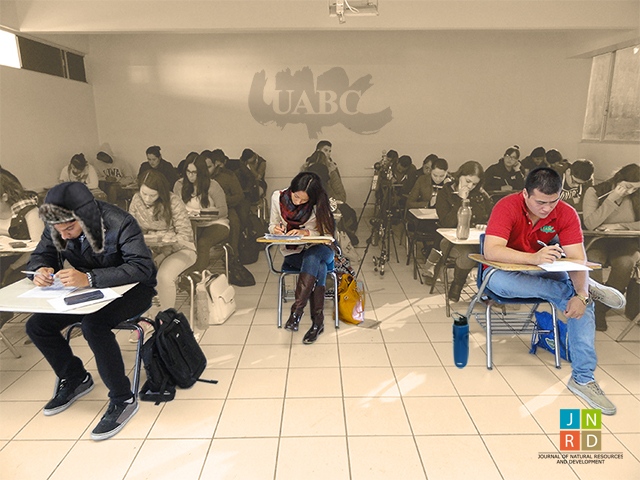Adaptive Thermal Comfort in Learning Spaces: A Study of the Cold Period in Ensenada, Baja California
Main Article Content
Abstract
Environmental thermal conditions decisively influence people’s performance, comfort, well-being and mood. In closed spaces, where people spend 80% of their time, thermal perception is a phenomenon studied from a multidisciplinary methodological approach. In Mexico, thermal comfort has been studied in isolation in different cities in the country, specifically at sites with warm, temperate or semi-cold bioclimate. The thermal estimates presented in this paper are the result of a thermal comfort study carried out during the cold period in the city of Ensenada, Baja California, which has a dry temperate bioclimate. The study was carried out from January 30th to March 3rd 2017 and consisted of the application of a questionnaire and the simultaneous recording of temperature, relative humidity and wind speed. The questionnaire was designed based on the subjective assessment scale suggested in ISO 10551 and ANSI/ASHRAE 55, while the instruments for measuring and recording environmental variables were selected and used based on ISO 7726. A database with 983 observations was created, and the data were processed using the Averages Intervals Thermal Sensation method. The thermal comfort range estimated for indoor spaces was 16.8 °C to 23.8 °C, with an ideal neutral temperature of 20.3 °C. The percentage of satisfaction vote with these results was 91%.
Article Details
Issue
Section

This work is licensed under a Creative Commons Attribution-NonCommercial-NoDerivatives 4.0 International License.

